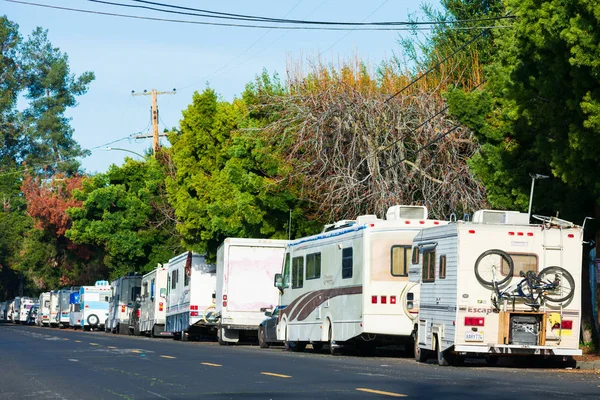California Lemon Law For RVs And Motorhomes: What Owners Need To Know
When embarking on a journey across California's scenic landscapes in a recreational vehicle (RV) or motorhome, the last thing owners want to encounter are mechanical or structural issues. Unfortunately, such problems can arise, leaving owners frustrated and seeking recourse. This is where California's Lemon Law comes into play, providing protection for consumers who find themselves with defective vehicles. In this comprehensive guide, we'll delve into the specifics of the California Lemon Law as it pertains to RVs and motorhomes, ensuring owners are well-equipped with the knowledge they need. Discover California Lemon Law expertise by visiting this specialist.
Understanding the Basics of California Lemon Law
The California Lemon Law is a robust set of regulations designed to safeguard consumers who have purchased or leased defective vehicles. Enacted to provide recourse for those who find themselves repeatedly facing issues with their vehicles, the law offers remedies such as replacement, repurchase, or compensation.
Applicability to RVs and Motorhomes
RVs and motorhomes are classified as "consumer goods" under the California Lemon Law, thus entitling owners to its protections. However, there are specific criteria that must be met for a vehicle to be considered a lemon. These include:
- Defects Covered: The law applies to defects that substantially impair the use, value, or safety of the vehicle. These defects must be covered under the manufacturer's warranty.
- Repetitive Repairs: The vehicle must have undergone a reasonable number of repair attempts for the same issue(s). The exact number of repair attempts may vary depending on the severity of the defects.
- Duration of Warranty: Lemon Law rights typically extend for the duration of the manufacturer's warranty period, or within a specific timeframe after purchase.

Steps to Take if Your RV or Motorhome is a Lemon
Document Issues Thoroughly:
Keep meticulous records of all problems experienced with your RV or motorhome. Include dates of each repair attempt, detailed descriptions of the issues, invoices, and any communication with the manufacturer or dealership. Thorough documentation forms the foundation for your Lemon Law case.
Give Notice to the Manufacturer:
Once you've identified persistent defects, promptly notify the manufacturer in writing. Clearly outline the problems, the number of repair attempts, and your expectation for resolution. Providing the manufacturer with an opportunity to address the issues is a crucial prerequisite before proceeding with Lemon Law proceedings.
Seek Legal Assistance:
If your attempts at resolution with the manufacturer prove unsuccessful, it's advisable to consult with a qualified Lemon Law attorney. Specializing in RV and motorhome cases, these professionals can offer expert guidance, assess the strength of your case, and advocate on your behalf throughout the legal process.
Initiate Lemon Law Proceedings:
Should the manufacturer fail to rectify the defects satisfactorily, it's time to initiate Lemon Law proceedings. File a formal claim with the California Department of Consumer Affairs or pursue arbitration through the manufacturer's dispute resolution program. Adhering to proper procedures is essential for a successful Lemon Law case.
Understand Your Rights and Remedies:
Familiarize yourself with the rights and remedies available under the California Lemon Law. Depending on the severity of the defects, you may be entitled to a repurchase of the vehicle, a replacement, or monetary compensation for expenses incurred due to the defects. Understanding your options empowers you to make informed decisions throughout the Lemon Law process.

Comply with Deadlines and Requirements:
Be mindful of the timelines and requirements outlined by the California Lemon Law. Failure to adhere to these guidelines could jeopardize your ability to seek recourse. Promptly respond to any requests for information or actions from the manufacturer, legal representatives, or relevant authorities to ensure a smooth and effective resolution process.
Taking these proactive steps can significantly enhance your chances of successfully navigating the Lemon Law process and securing the remedies you are entitled to as an RV or motorhome owner facing persistent defects.
Remedies Available Under the California Lemon Law
The California Lemon Law provides a range of remedies for consumers who find themselves with a defective vehicle. When an RV or motorhome is deemed a "lemon," owners are entitled to specific courses of action to address the issues they face:
Repurchase of the Vehicle:
One primary remedy available under the California Lemon Law is the manufacturer's obligation to repurchase the defective vehicle. If the defects substantially impair the use, value, or safety of the RV or motorhome, the manufacturer may be required to buy back the vehicle at its full purchase price. However, a reasonable deduction for the owner's use of the vehicle may apply.
Replacement Vehicle:
In certain cases, owners may opt for a replacement vehicle instead of a repurchase. The replacement vehicle should be of comparable value and features, providing the consumer with a functional and defect-free alternative to the lemon.
Compensation for Expenses:
Owners of lemon RVs or motorhomes are entitled to seek compensation for various expenses incurred due to the defects. This may include reimbursement for repair costs, towing fees, rental vehicle expenses during repair periods, and any other out-of-pocket expenses directly related to the defects.
Civil Penalty:
The California Lemon Law allows for the imposition of a civil penalty against the manufacturer for willful violation of the law. This penalty is an additional financial consequence meant to deter manufacturers from neglecting their responsibilities under the Lemon Law.
Attorney's Fees and Costs:
In successful Lemon Law cases, the manufacturer may be required to cover the owner's reasonable attorney's fees and legal costs. This provision encourages consumers to seek legal representation without the fear of incurring additional financial burdens.

